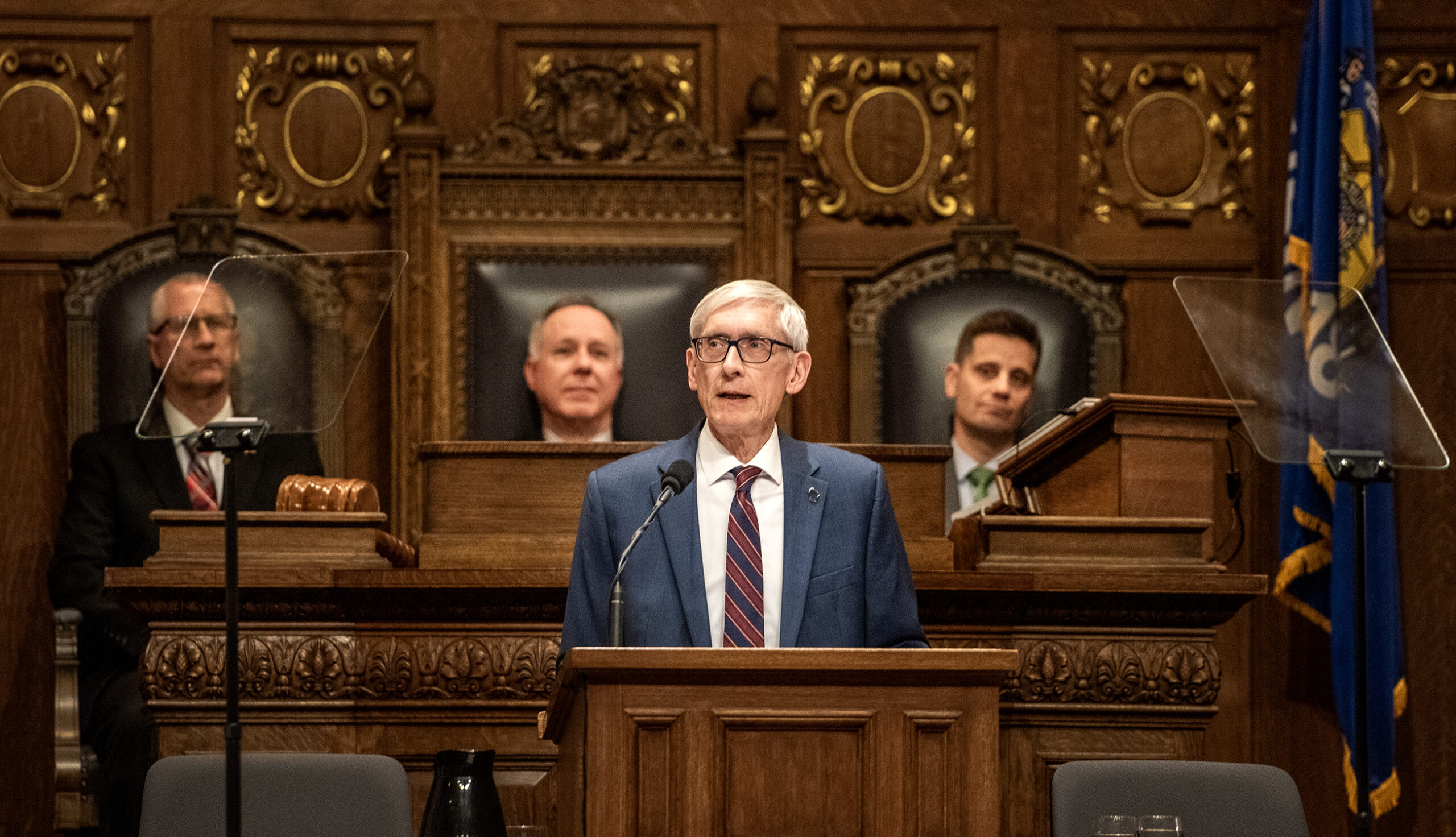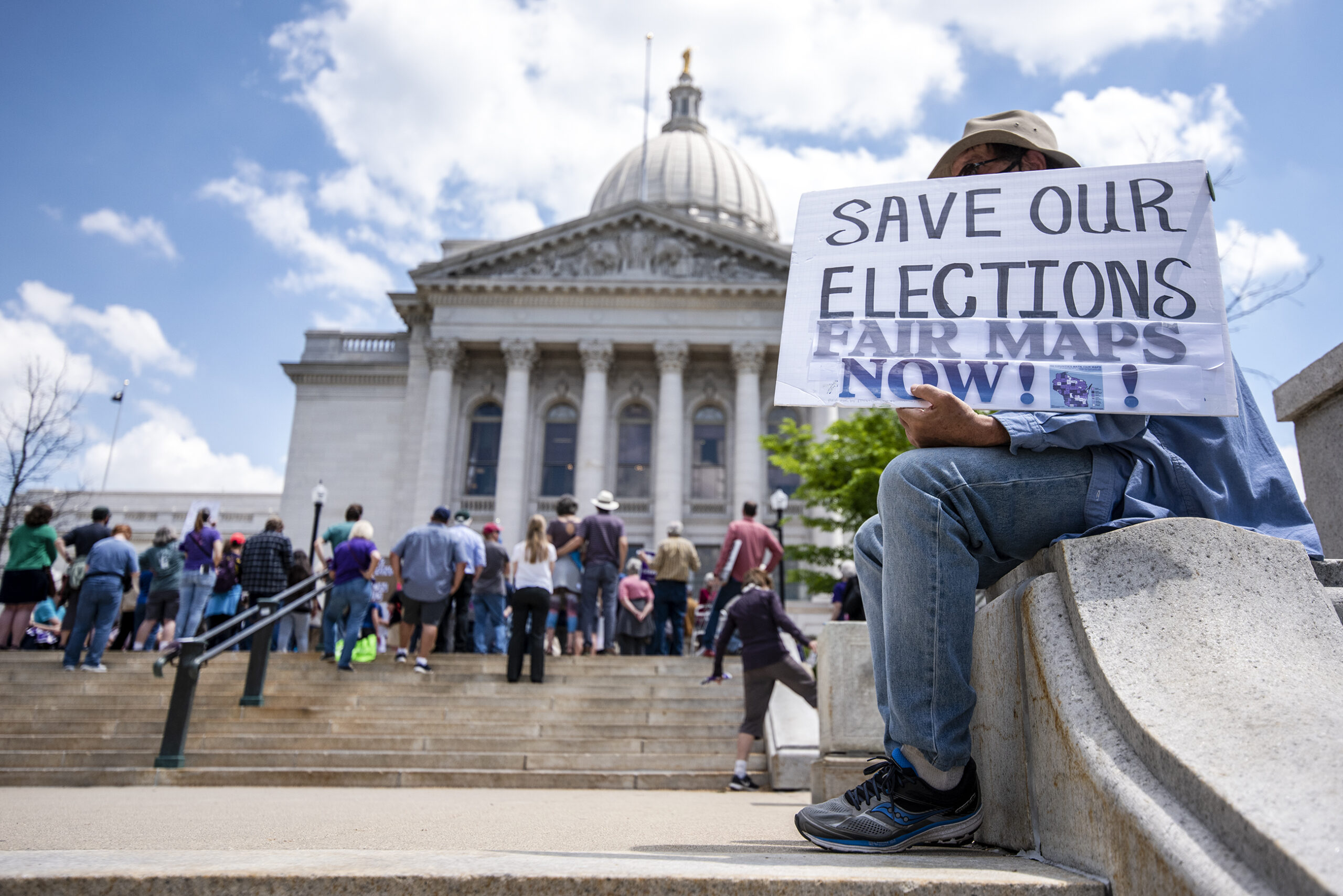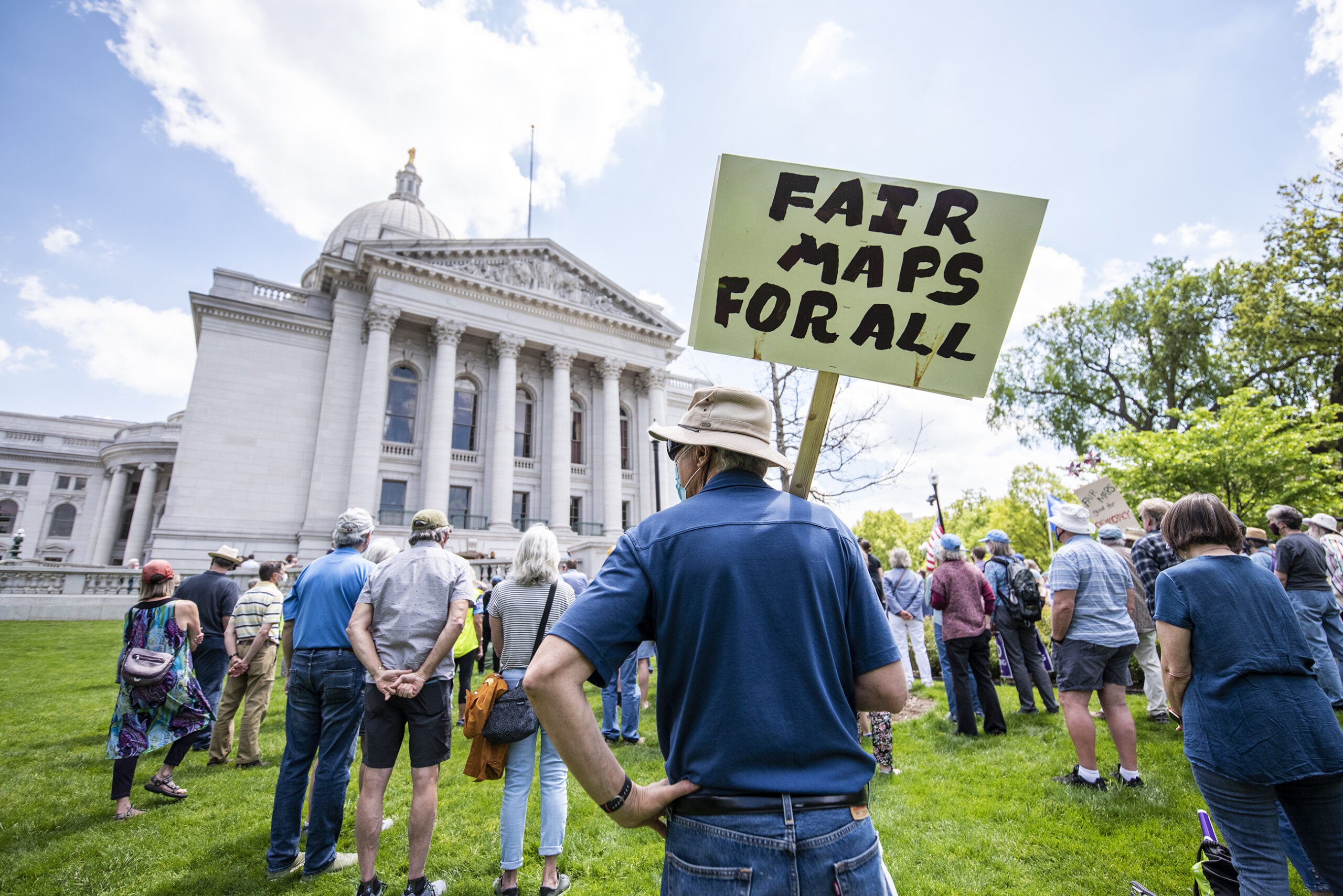Republican lawmakers have asked the state Supreme Court to block Wisconsin’s latest “Safer at Home” order, telling justices that Gov. Tony Evers’ administration broke the law in its effort to stop the spread of COVID-19.
The move drew a sharp rebuke from Evers, who charged that Republicans were putting their own quest for political power ahead the public’s health.
The Legislature, under the direction of its GOP leaders, filed the complaint Tuesday, roughly three days before the Evers administration’s second stay-at-home order is scheduled to take effect. The administration’s first order, which was handed down March 25, is scheduled to expire at 8 a.m. Friday.
Stay informed on the latest news
Sign up for WPR’s email newsletter.
While this is hardly the first power clash between Evers and Republicans, the latest challenge is focused on Department of Health Services Secretary Andrea Palm, Evers’ Cabinet secretary in charge of major aspects of the state’s response to the new coronavirus, including its stay-at-home orders.
“Purporting to act under color of State law, an unelected, unconfirmed cabinet secretary has laid claim to a suite of czar-like powers—unlimited in scope and indefinite in duration—over the people of Wisconsin,” reads the GOP complaint. “Per her decree, everyone in the State must stay home and most businesses must remain shuttered (with exceptions for activities and companies arbitrarily deemed “essential”).”
Evers declared a public health emergency on March 12 using a state law that grants governors the power to address emergencies resulting from “a disaster or the imminent threat of a disaster.” The governor’s declaration authorized DHS to “take all necessary and appropriate measures to prevent and respond to incidents of COVID-19.” The Legislature can revoke the governor’s powers, but even if lawmakers don’t act, they expire after May 11.
But it was Palm — not Evers — who issued Wisconsin’s initial Safer at Home order on March 24 and then extended the order until May 26 last week. Palm used the authority given to her under a different set of laws designed to manage communicable diseases. Those don’t require the governor’s approval, and they don’t expire with his emergency order.
Evers blasted the GOP lawsuit Tuesday, telling reporters it disregarded the thousands of residents who had contracted COVID-19 and the millions of residents who’d stayed home to prevent its spread.
“Peoples lives should always come first, not politicians’ powers,” Evers said. “Legislative Republicans frankly have said to the people of Wisconsin, ‘Our power, our political power, is more important than your health.’”
Palm, who was nominated by Evers to lead the Department of Health Services in January of 2019, never received a confirmation vote in the Senate. Two Republicans — Sen. Steve Nass, R-Whitewater and Sen. David Craig, R-Big Bend — have since called on the Senate to fire her.
Palm’s orders have cited a state law that gives DHS the power to “close schools and forbid public gatherings in schools, churches, and other places to control outbreaks and epidemics.” They’ve also cited a law that lets the department “authorize and implement all emergency measures necessary to control communicable diseases.”
While Evers has said he hopes the state can lift its stay-at-home order by May 26, he’s given no guarantees, a point noted by Republicans in their Supreme Court filing Tuesday.
“By the time the Secretary sees fit to lift her decree (be it in five weeks or eight months), many Wisconsinites will have lost their jobs, and many companies will have gone under, to say nothing of the Order’s countless other downstream societal effects,” the complaint argues. “Our State will be in shambles.”
The lawsuit asks the Supreme Court to immediately hear the case and to block Palm’s stay-at-home extension that is set to take effect on Friday. It also asks justices to order DHS to submit a new plan through the administrative rulemaking process, where lawmakers have what amounts to veto power over the final product.
The Republican complaint was hardly unexpected. GOP leaders had said for days that they planned to take the Evers administration to court, and Evers’ chief legal counsel, Ryan Nilsestuen, defended the legality of Palm’s orders at an April 16 media briefing.
“Those powers are always around,” Nilsestuen said at the time. “Communicable disease can pop up at any time.”
While a case like this might typically take months to wind its way through the court system, justices can move quickly when they want to. For example, Evers issued an order on April 6 that would have delayed the state’s April 7 election in response to COVID-19. Roughly four hours later, the court’s conservative majority overturned the governor.
Based upon an order handed down by the court Tuesday afternoon, it appears the court won’t move quite so quickly this time. Justices gave the DHS until April 28 to respond to the lawsuit, and gave Republicans until April 30 to respond to the DHS.
This will be the first time the state Supreme Court has been asked to rule specifically on the DHS secretary’s emergency powers, which Evers did not use when he tried to stop the April election.
While conservative Justice Daniel Kelly lost his bid for a 10-year term on the court, his current term runs until July 31, which means he’ll be part of a 5-2 conservative majority that will hear the case.
Kelly joined a dissent by fellow Republican Justice Rebecca Bradley on March 22 that raised alarms about government overreach in the age of COVID-19. While that case was specific to the court’s postponement of jury trials, Bradley has repeatedly tweeted quotes from founding fathers that warn about the loss of liberty.
Asked Tuesday whether justices were too “cozy” with Republican lawmakers, the governor said he trusted the court would see this issue his way.
“I believe the state Supreme Court is in a position to make the right decision, period,” Evers said. “Frankly, they understand that by delaying efforts that people are going to die. This isn’t just some academic endeavor here. People die every day because of this and the more we screw around with it the more people die.”
The GOP lawsuit comes as Republican activists are planning a protest of the stay-at-home order for Friday in Madison.
Other Republicans — from Assembly Speaker Robin Vos, R-Rochester, and Sen. Majority Leader Scott Fitzgerald, R-Juneau, to rank-and-file lawmakers, to their allies in talk radio — have also ramped up their criticisms of the governor.
Those critiques may reflect, or influence, how Evers is viewed by the rest of public, but the last time Marquette University Law School conducted a poll about the state’s response to COVID-19 in late March, the vast majority of those surveyed supported the state’s actions. In that poll, 86 percent of voters said they supported closing schools and businesses while 76 percent said they supported Evers’ response to the pandemic.
Wisconsin Public Radio, © Copyright 2024, Board of Regents of the University of Wisconsin System and Wisconsin Educational Communications Board.






